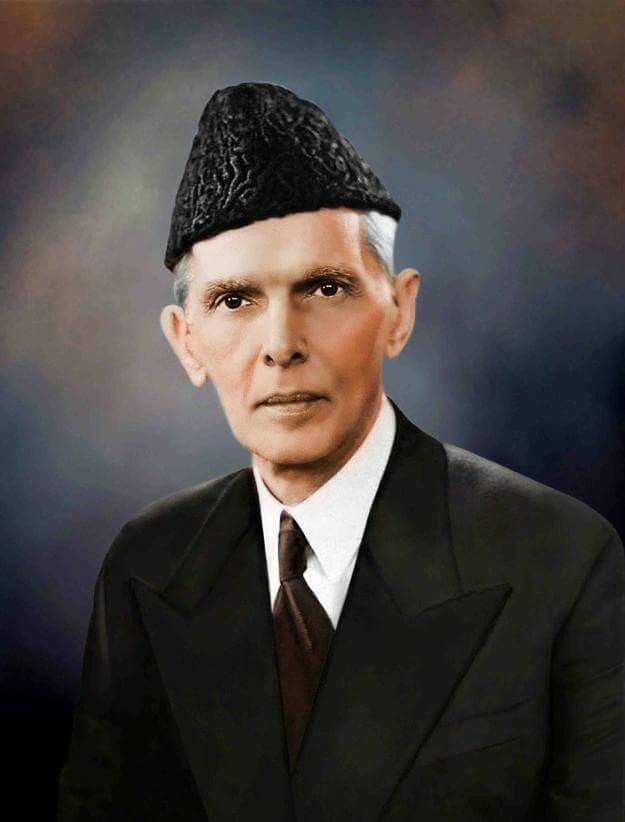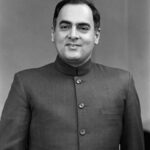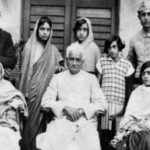Muhammad Ali Jinnah: The Founder of Pakistan and His Legacy
Muhammad Ali Jinnah, the founder of Pakistan, remains one of the most influential figures in South Asian history. Known as “Quaid-e-Azam” (meaning Great Leader), Jinnah played a pivotal role in the creation of Pakistan as an independent nation in 1947. His life and legacy continue to influence both Pakistan and the broader region, and his vision for the new nation remains a central part of its political, social, and cultural identity. This article delves into the life, impacts, and significance of Muhammad Ali Jinnah, his journey, and the key moments that defined his legacy.
Muhammad Ali Jinnah Early Life and Education
Muhammad Ali Jinnah was born on December 25, 1876, in Karachi, which was then part of British India. He hailed from a merchant family of Gujarati descent. His early education was in Karachi, and later, Jinnah moved to London in 1892 to study law at Lincoln’s Inn, one of the most prestigious legal institutions in the United Kingdom.
Jinnah returned to India in 1896 as a qualified barrister. He began practicing law in Bombay (now Mumbai) and soon became one of the leading lawyers in the city. His legal expertise and his sharp intellect helped him gain a reputation as a formidable lawyer.
Muhammad Ali Jinnah Entry into Politics
Jinnah’s political career began with his involvement in the Indian National Congress (INC) in 1906. At that time, he was a strong advocate for Hindu-Muslim unity and worked closely with key figures in the Congress Party, including Mahatma Gandhi and Jawaharlal Nehru. He believed in a united India where all religions and communities could coexist peacefully.
However, over time, Jinnah became disillusioned with the Congress Party’s methods and their failure to address Muslim concerns. His disenchantment deepened as he saw the growing Hindu-majority influence in the Congress, which sidelined the interests of the Muslim community. This led him to shift his political allegiance towards the All India Muslim League (AIML), a party that sought to represent the interests of Muslims in British India.
Muhammad Ali Jinnah The Demand for Pakistan
The defining moment in Jinnah’s political career came in 1940 when he presented the Lahore Resolution (later known as the Pakistan Resolution) to the Muslim League. The resolution called for the creation of a separate nation for Muslims in the north-western and eastern zones of India, which would later become Pakistan. This marked the beginning of a struggle for the creation of Pakistan as a separate state for Muslims.
Jinnah’s leadership in the Muslim League was instrumental in the creation of Pakistan. His vision was clear—he believed that Muslims needed a separate homeland where they could practice their religion, culture, and way of life without fear of oppression from a Hindu-majority India. He argued that the Muslims of India were distinct from Hindus in terms of religion, culture, and social practices, and thus they deserved a nation of their own.
Through his leadership, Jinnah rallied millions of Muslims across the subcontinent to support the cause of Pakistan. His political acumen, diplomatic strategies, and ability to unite diverse Muslim factions played a critical role in achieving the dream of a separate nation.
Muhammad Ali Jinnah The Creation of Pakistan
After years of struggle, negotiations, and political maneuvering, the British government, led by Winston Churchill and later Clement Attlee, finally agreed to partition British India into two independent nations—India and Pakistan. On August 14, 1947, Pakistan came into existence, and Jinnah became its first Governor-General.
The creation of Pakistan was a momentous event, but it was also marked by significant violence and upheaval. The partition led to widespread communal riots, mass migrations, and a large-scale human tragedy. Despite the challenges, Jinnah’s leadership during the creation of Pakistan earned him immense respect, not just in Pakistan, but also among Muslims worldwide.
Muhammad Ali Jinnah Leadership and Vision for Pakistan
Jinnah’s vision for Pakistan was one of a secular, democratic state where all citizens, regardless of their religion, would be treated equally. In his famous speech at the Constituent Assembly of Pakistan on August 11, 1947, Jinnah declared:
“You are free to go to your temples, you are free to go to your mosques or to any other place of worship in this state of Pakistan. You may belong to any religion, caste or creed—that has nothing to do with the business of the state.”
This speech emphasized Jinnah’s commitment to a Pakistan where religious minorities would be respected and treated equally. He envisioned a state where the rights of all citizens, regardless of religion, would be protected under the law. This vision remains an essential part of Jinnah’s legacy, despite the evolving political dynamics in Pakistan after his death.
Muhammad Ali Jinnah The Legacy of Muhammad Ali Jinnah
Jinnah’s impact on South Asia cannot be overstated. His leadership and determination led to the creation of a new nation for Muslims, and his vision for a secular Pakistan continues to shape the country’s politics and identity. Jinnah’s ability to rise above personal and communal differences, his dedication to his cause, and his unwavering belief in the rights of Muslims made him a remarkable leader.
However, over time, his vision for a secular Pakistan has faced challenges. While Jinnah’s secular ideals were central to the creation of Pakistan, later political leaders took the country in a different direction. Despite this, Jinnah’s legacy as the Father of the Nation remains firmly intact in Pakistan, where he is celebrated for his role in the creation of the country.
Muhammad Ali Jinnah Frequently Asked Questions (FAQs)
Q1: What was Muhammad Ali Jinnah’s role in the creation of Pakistan? Jinnah played a crucial role in the creation of Pakistan by leading the Muslim League and advocating for the creation of a separate state for Muslims. His political vision and leadership helped secure Pakistan’s independence in 1947.
Q2: What was Jinnah’s vision for Pakistan? Jinnah envisioned Pakistan as a democratic, inclusive, and secular nation where all citizens, regardless of their religion or ethnicity, would be treated equally. His commitment to religious freedom and equality remains a cornerstone of his legacy.
Q3: Why is Jinnah called the “Quaid-e-Azam”? “Quaid-e-Azam” means “Great Leader” in Urdu, and Jinnah is called this due to his leadership in the creation of Pakistan and his contributions to the political and social development of the country.
Conclusion: Muhammad Ali Jinnah
Muhammad Ali Jinnah’s life is a testament to the power of conviction, vision, and leadership. His steadfast determination to secure a separate homeland for Muslims, his efforts in uniting diverse Muslim factions, and his vision for an inclusive and democratic Pakistan have left an indelible mark on history. Jinnah’s leadership in the creation of Pakistan and his commitment to his ideals have made him an enduring figure in South Asian politics. Today, Muhammad Ali Jinnah is remembered not only as the Father of Pakistan but also as a visionary leader whose legacy continues to inspire millions.










